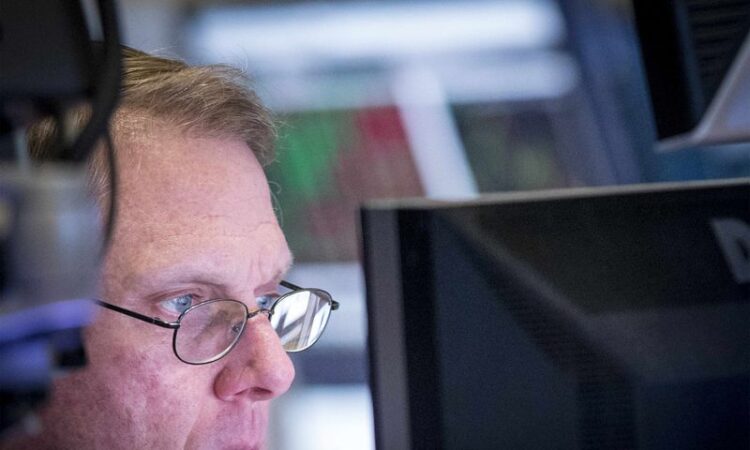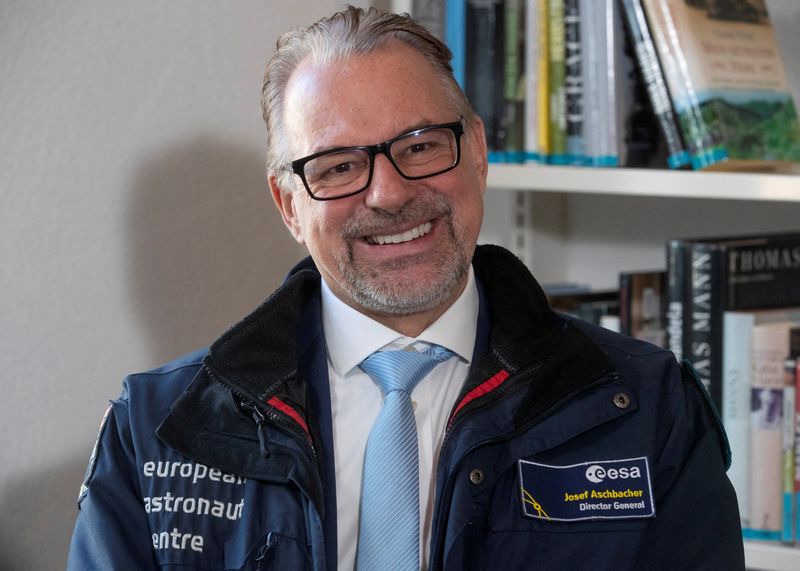

© Reuters. FILE PHOTO: Director-General of the European Space Agency (ESA) Josef Aschbacher smiles as he attends an interview with Reuters during the World Economic Forum (WEF) in Davos, Switzerland, January 18, 2023. REUTERS/Arnd Wiegmann/File Photo
By Tim Hepher
PARIS (Reuters) – Europe’s top space official said on Tuesday there was “light at the end of tunnel” in efforts to bring the delayed Ariane 6 to the launchpad and restore Europe’s independent access to space.
Europe’s new heavyweight launch vehicle has been delayed by technical glitches, leaving the continent relying on Elon Musk’s SpaceX for some launches until some time in 2024.
Josef Aschbacher, director general of the European Space Agency (ESA), said a more precise 2024 launch period would be defined following a delayed long-duration firing test due on Nov. 23.
“I think it is fair to say we are seeing light at the end of the tunnel. We are hopeful that we are on a good path for the first flight,” Aschbacher told the AJPAE French aerospace media association.
Aschbacher was speaking as attention turns to the next phase of funding for the new launcher ahead of a meeting of European space ministers to be held in Seville, Spain, on Nov. 6-7.
The ESA’s 22 nations have agreed funds for an inaugural test flight and 14 operational missions. Now, they are seeking an accord on the next phase of “stabilised” operations, covering flights 16 to 42.
Aschbacher declined to comment on the state of negotiations ahead of the Seville “Space Summit”, which is also due to address climate change and Europe’s ambitions in space exploration.
People familiar with the matter said there had been progress in narrowing differences between the three largest launch nations – France, Germany and Italy – in recent days, but that any funding round would depend on agreement of smaller nations.
The previous generation of rocket for heavy payloads, Ariane 5, was retired in July. The smaller Vega C has been grounded since Dec. 22 after a failed launch.
Europe’s third traditional path to space, the Russian Soyuz programme, was interrupted last year amid the breakdown in East-West relations following Russia’s invasion of Ukraine.
Those developments have left Europe scrambling to close the gap in launch capability as space increasingly becomes an arena for economic and strategic competition.
“We are in a launcher crisis … This is something that is highly critical for Europe,” Aschbacher said.
A task force comprising the heads of ArianeGroup – the Airbus/Safran joint-venture responsible for building Ariane 6 – operator Arianespace, French space agency CNES – which runs the launchpad – and the ESA meets every 10-14 days.
Aschbacher also highlighted efforts to give Europe a greater presence in exploration as India and China make new strides.
A group of experts including former NATO chief Anders Fogh Rasmussen urged the ESA this year to increase its autonomy in human and robotic space exploration. Europe currently relies on the United States, and until recently Russia, to carry astronauts.
But such plans have come up against budget constraints and competing priorities amid war in Ukraine and now the Middle East.
People familiar with the matter said that in the absence of new funds ministers meeting in Spain next week could kickstart a project to create a reusable cargo vehicle.
Such a move could benefit from a relatively modest seed funding in an attempt to kickstart private investment.
But in Europe’s system of horse-trading for space funding, any agreement on exploration is likely to depend on progress on the critical issue of Ariane 6 funding, the people said.





